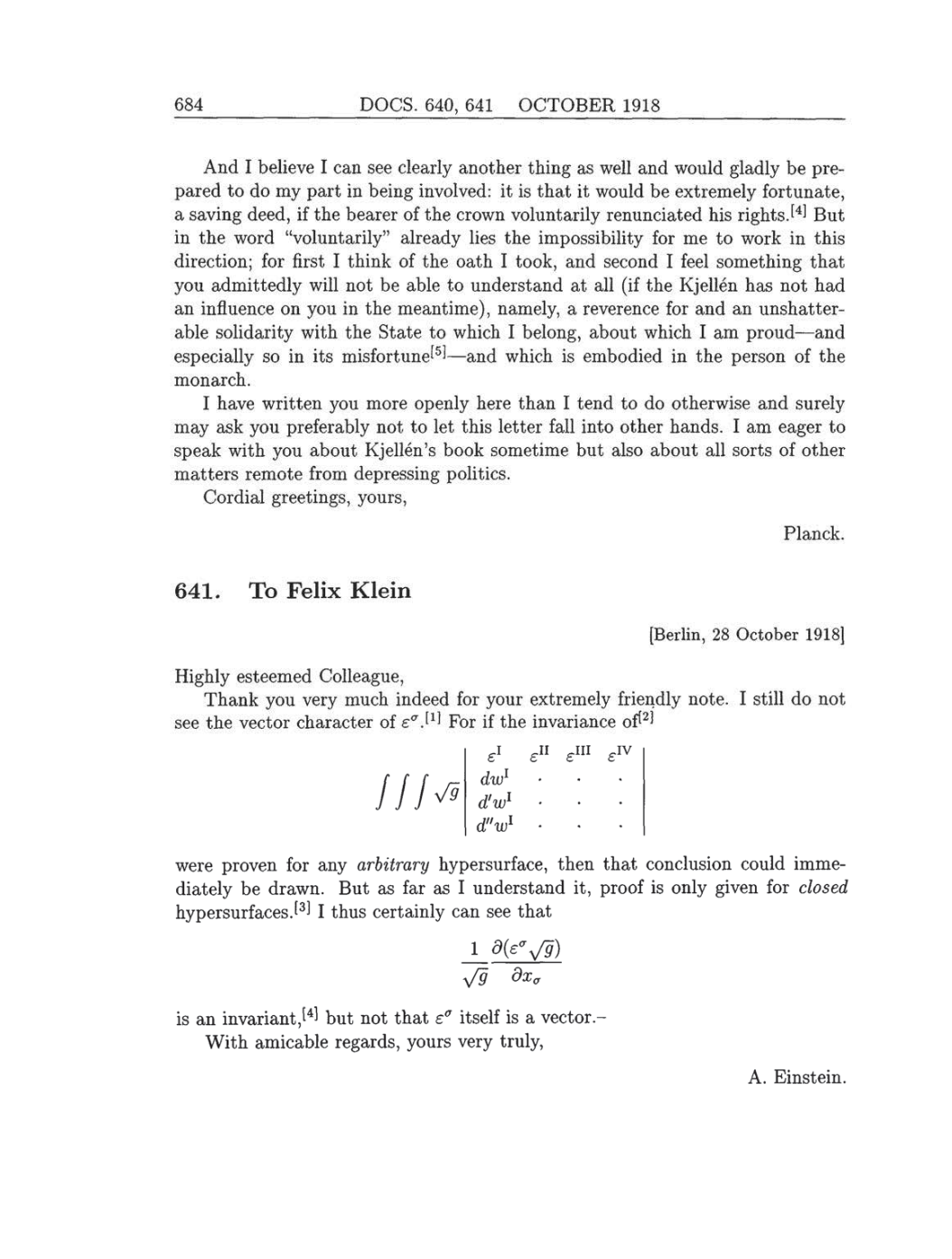684
DOCS.
640,
641
OCTOBER
1918
And
I
believe
I
can see clearly
another
thing
as
well
and would
gladly
be
pre-
pared
to do
my
part
in
being
involved: it
is
that
it would be
extremely
fortunate,
a
saving deed,
if
the bearer
of
the
crown
voluntarily
renunciated his
rights.[4]
But
in
the
word
“voluntarily” already
lies
the
impossibility
for
me
to work in
this
direction;
for first
I
think
of the
oath
I
took,
and second
I feel
something
that
you
admittedly will
not
be
able to understand
at
all
(if
the
Kjellén
has not
had
an
influence
on
you
in
the
meantime),
namely,
a reverence
for and
an
unshatter-
able
solidarity
with
the State
to which
I
belong,
about
which
I
am
proud-and
especially
so
in its
misfortune[5]–and
which
is
embodied in
the
person
of
the
monarch.
I
have
written
you
more
openly
here
than
I
tend
to
do otherwise
and
surely
may
ask
you
preferably
not
to let
this letter
fall into
other
hands.
I
am eager
to
speak
with
you
about
Kjellén’s
book sometime
but
also
about
all
sorts
of
other
matters remote from
depressing politics.
Cordial
greetings,
yours,
Planck.
641. To
Felix Klein
[Berlin,
28
October
1918]
Highly
esteemed
Colleague,
Thank
you very
much indeed for
your extremely friendly
note.
I
still do
not
see
the vector character
of
Eo.[1]
For
if
the invariance
of[2]
//M
dw1
d'w1
d"w1
-in
£
IV
were
proven
for
any
arbitrary
hypersurface,
then that
conclusion could imme-
diately
be drawn.
But
as
far
as
I
understand
it, proof
is
only
given
for closed
hypersurfaces.[3]
I
thus
certainly
can see
that
1
djfjg)
y/g
dxa
is
an
invariant,[4]
but
not
that
eo
itself is
a
vector.-
With
amicable
regards, yours very
truly,
A.
Einstein.
